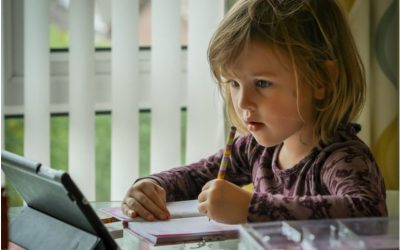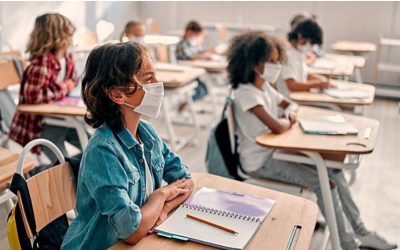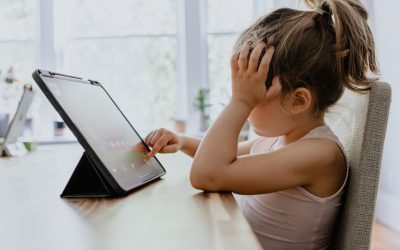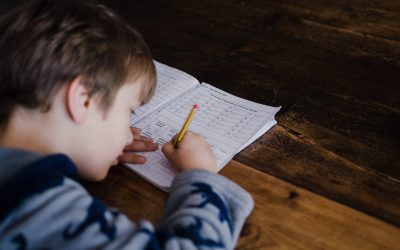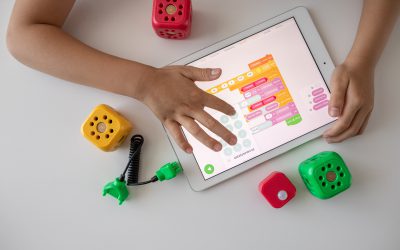A COVID-generation: who are the winners and losers of a disrupted school year? Reflections from the Netherlands.
22 Dec 2020 | News, Professionals
In this blog, Melanie Ehren, Martijn Meeter and Anne Fleur Kortekaas look at which students are likely to become a ‘COVID-generation’. They argue that students who transitioned from primary to secondary education in the 2019-2020 school year and students whose parents have relatively low levels of education will be most negatively affected by the pandemic. The cancellation of the national standardized test at the end of primary education has resulted in them being placed in lower tracks in secondary education, while the closure of schools has also disproportionally reduced their opportunity to learn.
The pandemic has however also created opportunities to access higher levels of education for students in secondary education who graduated in the 2019-2020 school year; they have benefited from the cancellation of standardized exams, the introduction of additional resits for school-based assessments and loosening of entry criteria for university.
Prof. M. Ehren (m.c.m.ehren@vu.nl)
Prof. M. Meeter
Dr. A. Kortekaas
22.12.2020



The term ‘COVID-generation’ has become the new buzz word to refer to children and adolescents under the age of 20 who have, and will be, affected by school closures and the disruption in other essential health and social services. A recent report by UNICEF[1] estimates that globally, more than 570 million students – 33 per cent of the enrolled students worldwide –were affected by country-wide school closures in 30 nations (as of November 2020). They will have had varying access to remote and online teaching during these closures, and particularly students from disadvantaged backgrounds will have had little to no learning during this period. The lost learning of this generation is thought to have a detrimental effect on the remainder of their school and future employment career; a phenomenon that is called the ‘Matthew effect’ (after the evangelist’s saying that “For whoever has, to him shall be given […] but whoever has not, from him shall be taken away even that he has”): accumulating disadvantage when students who are left behind get further behind as time goes by.
Some however argue that we will not have a lost ‘COVID-generation’, giving the counter example from disruptions to the education system in France in 1968. That year, student strikes and cancellations of the school-leaving exams led to a highly successful generation as the lowering of thresholds at critical stages of the education system enabled a proportion of students to pursue more years of higher education than would otherwise have been possible. For those on the margin of passing their examinations, additional years of higher education increased future wages and occupational levels. The positive effect was also transmitted across generations and is reflected in the educational performance of the children of the 1968 generation (Maurin and McNally, 2007[2]).
Clearly, not all student groups will be affected in the same manner, suggesting that the pandemic will have ‘educational winners and losers’. This leads us to question:
Will there be a ‘COVID-generation’? And which student groups do we expect to be part of this lost generation?
Learning loss for students from disadvantaged backgrounds
To understand how various student groups are affected by disruptions in their school career, we need to take a closer look at the varying consequences of these disruptions and how these vary across school systems and school phases.
Here we take the example of the Netherlands where a recent study by a team of researchers from Oxford university[3] indicates that, as a result of the 8-week closures of primary schools from mid-March to mid-May, the average learning loss is equivalent to a fifth of a school year, nearly exactly the same period that schools remained closed. The study also finds that losses are up to 55% larger among students from less-educated homes. Interestingly, learning loss does not vary according to past levels of achievement: low performing students did not suffer more loss due to school closures then high performing students. Particularly parents with lower educational backgrounds struggled to support their children with homeschooling, particularly in secondary education. Although both groups equally valued schoolwork, 40% of parents with a low educational background said they felt unable to homeschool their children, while 75% of the more educated group did not experience any issues. Differences also reflect the infrastructure of the home (ie place to study, laptop)[4].
There might thus not be an overarching COVID-generation, but a specific problem concentrated in those students whose parents have low educational levels and who haven’t been able to continue learning at home and will now continue to struggle to catch-up in school. Particularly when they are in a school with more affluent peers who have continued to learn and where teachers are unable to differentiate their teaching to close these extensive performance gaps[5].
Fortunately, the Dutch government has recognized this unfortunate and disparate effect of the pandemic by putting in place a national funding scheme for schools to implement catch-up programmes for this particular group of students. Similar schemes are being implemented in other countries, such as the national tutoring programme and catch-up premium in the UK. In the Netherlands, one of the conditions for these programmes is that they do not replace regular teaching and target only those students who need to catch up; these students receive individual or small group tutoring before or after school hours, or other types of (behavioural) interventions to allow them to fully join the regular in-class instruction. If these programmes are successful and schools make purposeful and evidence-informed decisions, then perhaps we won’t see increasing inequality and achievement gaps and a lost generation.
A lost generation: students in year 1 of secondary education in 2020-2021?
The school closures in 2019-2020 also meant that standardized exams at the end of primary and secondary education were cancelled with further changes in secondary school-leaving exams announced for 2020-2021. In the Netherlands, students are tracked in different school types in secondary education according to ability level where only the highest track (VWO) will get you access to a university. Getting into a higher secondary school type after primary education is thus a crucial and defining point in children’s life; it can make or break the opportunities they have later in life as moving up to a higher school type is notoriously difficult[6].
In a regular school year, students are placed into secondary school types on the basis of their primary school teacher’s advice (using a portfolio of formative assessments), where such advice can be adjusted upwards (never downwards) on the basis of a national standardized test. Estimates from the national planning bureau (CPB[7]) suggest that this year, 14,000 pupils were placed in a lower track then when they would have sat the national assessment. This group represents 8% of all pupils -2 to 3 students per class in a secondary school- and includes an over representation of students with parents with low levels of education. These students are stuck in a lower school type with all of the consequences for lack of opportunities to for example go to university later in their school career.
These students may become the lost COVID-generation, unless schools are flexible in allowing them to move upwards. The Minister of Education has sent out a letter to secondary schools, asking them to implement a range of formative assessments in year 1 to target these students; the next step needs to include a set of transition arrangements to enable these students to move upwards to a higher secondary school type; which often means going to another school altogether, not an easy task for anyone age 13.
The winners: 2019-2020 secondary school-leavers going to university
The cancellation of standardized exams in secondary education has, on the contrary, had a more positive effect for those students who entered university this academic year. In the Netherlands, secondary school-leaving exams are comprised of school-based assessments and a national exam, where the grade for both types of assessments is averaged to pass a subject. When national exams were cancelled last year, school-based assessments only informed the final grade in each subject and to qualify for a diploma.
Estimates by the National Bureau for Economic Policy Analysis’ (CPB[8]) suggest that 8% of students in secondary education would have received a different outcome when having sat the exam, where particularly affluent white boys would be penalized as they tend to cram for their final exams and do less well on school-based assessments. To mitigate for these negative consequences and to give everyone a fair chance to pass, the Dutch Ministry of Education offered all students additional resits of their school-based assessments in a maximum of three subjects where their highest grade would count toward to overall pass mark. This resulted in an overall pass rate above 98%, with a mere 25% of the fair rates of preceding years in all school tracks, as the below figure shows.
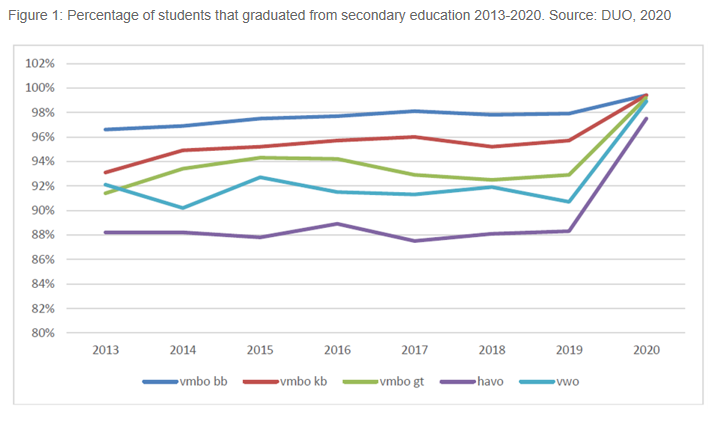
Source: CPB (2020[9])
Students who graduated from secondary education in 2019-2020 will thus likely have more opportunities than previous cohorts and have similar higher levels of educational returns as the famous ‘angry French students’ who protested during the baccalauréat exam. They seem to be the clear ‘educational winners’ in this pandemic.
Where next
Unfortunately, disruptions are not yet over. Although schools are now open, entire grades are frequently sent home when teachers are ill or have to self-isolate, or students miss class when they themselves are ill and potentially infectious. We do not yet know how this will impact on students who are now in the transition years from primary to secondary, and from secondary education to FE, HE or the labour market, but a continuation of the previously described mechanisms are likely to occur.
The current efforts for catch-up programmes may mitigate some of these potential damages, but the implementation of these programmes will likely also be impacted by disruptions that affect regular schooling. Only those schools who have good organizational capacity and quality of staff may be able to put in place necessary contingency plans to continue schooling for all learners and enable those from poor backgrounds to catch-up, but as they will have to rely on parental support for home-schooling and learning during those disrupted times, it is unlikely that they can do this on their own. Sustainable change for the future will need ongoing investment in education of particularly disadvantaged students, such as through (state-paid for) tutoring, parental support in helping students with homework and home-learning and more structured arrangements to allow students to move up to a higher school type in secondary education.
[1] https://news.un.org/en/story/2020/11/1078022
[2] https://www.parisschoolofeconomics.eu/docs/maurin-eric/jole-1968.proof.pdf
[3] SocArXiv Papers | Learning Inequality During the Covid-19 Pandemic (osf.io)
[4] SocArXiv Papers | Inequality in homeschooling during the Corona crisis in the Netherlands. First results from the LISS Panel. (osf.io)
[5] https://www.onderwijsinspectie.nl/documenten/rapporten/2020/04/22/staat-van-het-onderwijs-2020
[6] Relevant to note here is that an amendment to legislation was passed in June 2020 to allow easier transition to higher school types when they have met a set of additional requirements (e.g. completion of an additional course); however, schools still have leeway in implementing these measures and external accountability targets would incentive them not to admit students from lower tracks: https://www.vo-raad.nl/nieuws/amvb-doorstroomrecht-vmbo-havo-en-havo-vwo-gepubliceerd
[7] https://www.cpb.nl/sites/default/files/omnidownload/CPB-Coronapublicatie-Schrappen-eindtoets-groep-8-kan-ongelijkheid-vergroten.pdf
[8] https://www.cpb.nl/effect-schrappen-centraal-examen-zonder-aanvullende-maatregelen#docid-160287
[9] https://www.cpb.nl/effect-schrappen-centraal-examen-zonder-aanvullende-maatregelen#docid-160287
See also information for:
Most recent blogs:
How LEARN! supports primary and secondary schools in mapping social-emotional functioning and well-being for the school scan of the National Education Program
Jun 28, 2021
Extra support, catch-up programmes, learning delays, these have now become common terms in...
Conference ‘Increasing educational opportunities in the wake of Covid-19’
Jun 21, 2021
Covid-19 has an enormous impact on education. This has led to an increased interest in how recent...
Educational opportunities in the wake of COVID-19: webinars now available on Youtube
Jun 17, 2021
On the 9th of June LEARN! and Educationlab organized an online conference about...
Homeschooling during the COVID-19 pandemic: Parental experiences, risk and resilience
Apr 1, 2021
Lockdown measures and school closures due to the COVID-19 pandemic meant that families with...
Catch-up and support programmes in primary and secondary education
Mar 1, 2021
The Ministry of Education, Culture and Science (OCW) provides funding in three application rounds...
Home education with adaptive practice software: gains instead of losses?
Jan 26, 2021
As schools all over Europe remain shuttered for the second time this winter because of the Covid...

